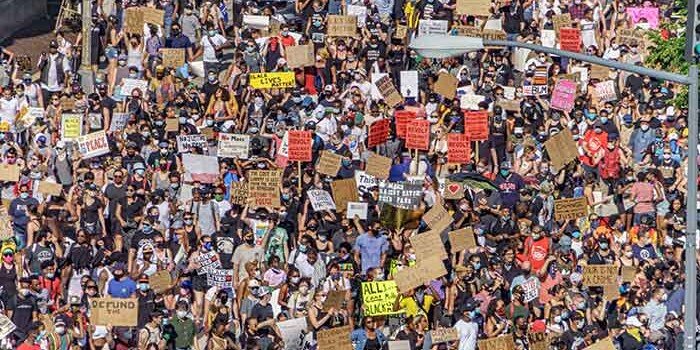Pictured above: Farmers Protesting in India. Image courtesy of Ted Eytan.
By Madhavi Rao ’24
Staff Writer
In New Delhi, India’s 72nd Republic Day celebrations were underway, but in another part of the city, a group of farmers protested laws passed by the Indian government in September. This latest protest on Jan. 26 follows two months of peaceful demonstrations against three agricultural bills that have been widely received as harmful. The protest began when farmers on tractors broke away from the established Republic Day parade route and were met with harsh responses from the Delhi police.
Since the Dilli Chalo (“Let’s go to Delhi”) march in late November, Indian farmers have camped outside the border of the capital city in protest against what have come to be known as the farmer’s bills. These reforms will essentially strip away regulations on farmers’ produce, making them vulnerable to the low competing prices of the free market. The New York Times reported that these laws have been suspended until the government can conduct talks with the farmer unions that are calling for the abolition of these bills.
On Jan. 26, tens of thousands of the farmers who were camped outside of the Delhi border entered the city to take part in a planned Republic Day parade. According to the Indian publication The Hindu, the farmers were to drive down a predetermined parade route in tractors, as was agreed upon by the joint front of all protesting unions, the Samyukt Kisan Morcha. However, chaos ensued when some of the farmers deviated from these predetermined routes, though it is unclear whether or not this was intentional. Farmers on tractors who were not a part of the official parade broke down barricades at the city border and drove into Delhi as part of a demonstration, reported the BloombergQuint.
The protests reached a peak when some of the farmers managed to reach Red Fort in the older part of the capital. The police responded strongly against the farmers’ dissent as the farmers were met with lathi, or batons, charges, water cannons and tear gas. The day’s events also led to a ban of internet and mobile services across the city. These violent interactions with the police resulted in the death of one protester, Navreet Singh, reported CNN.
In response to Tuesday’s events, Assistant Professor of History Abhilash Medhi expressed his discomfort with the prevalent narrative. “The Delhi Police's reaction to the parade and subsequent reactions within the media appear to fit rather nicely with what Ranajit Guha called ‘the prose of counter-insurgency,’” he explained. “In [this prose], the violence of protesters is used, first, as a ruse for retributive violence and, second, to delegitimize the protesters’ legitimate demands in the public eye. To me, that is the more interesting aspect of what played out [on Tuesday].”
The blanket farmers union Samyukt Kisan Morcha denounced the protests, stating, “We also condemn and regret the undesirable and unacceptable events that have taken place today and dissociate ourselves from those indulging in such acts,” reported Al-Jazeera.
Prakruti Nikam ’22, an Indian student at Mount Holyoke, voiced her frustrations with the Indian media’s portrayal of the farmers’ protests. She said, “It’s very sad to see that the media in India have such polarized opinions since they have been forced to speak a certain way because of the government. They have repeatedly called the farmers’ protest[s] ‘violent’ and that is only to keep the Modi government happy.”
“The farmers just want to be heard and they are trying to make a living,” Nikam continued. “The Delhi police have a history of violence when it comes to curbing riots and protests,” Nikam concluded, referencing the similar treatment of protesters by the police during the demonstrations against the controversial Citizenship Amendment Act in 2019.
On Saturday, Prime Minister of India Narendra Modi said in a statement to a meeting of legislative assembly leaders that the government’s proposal to suspend the farmer’s laws still stood. He said that the problem would only be resolved through dialogue with the government. As reported by The Hindu, Modi, reiterating a statement made by Agriculture Minister Narendra Singh Tomar, said, “We’ve not reached a consensus but we are giving you [farmers] the offer and you may go and deliberate.”
In response to Modi, Samyukt Kisan Morcha indicated that they are interested in holding talks with the government, but will stand by their demand that the bills be withdrawn, according to The Times of India.
“I do expect a change in the way this government negotiates with farmers going forward. I would be surprised to see any overtures before the budget,” Medhi explained, speaking of the central government’s potential decision to provide the country’s farmers with financial grants. “The government might see the budget as a convenient time to make some concessions. Quite how concrete any of those concessions are remains to be seen. Knowing this government and its history with budgets, the overwhelming desire would probably be to hide behind promises and big numbers.”


